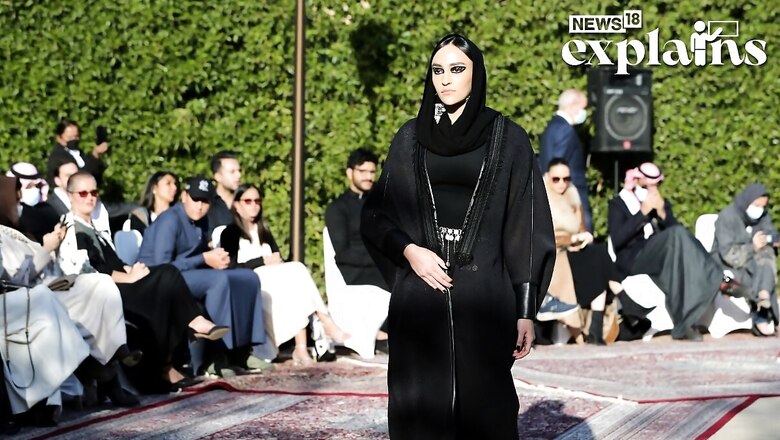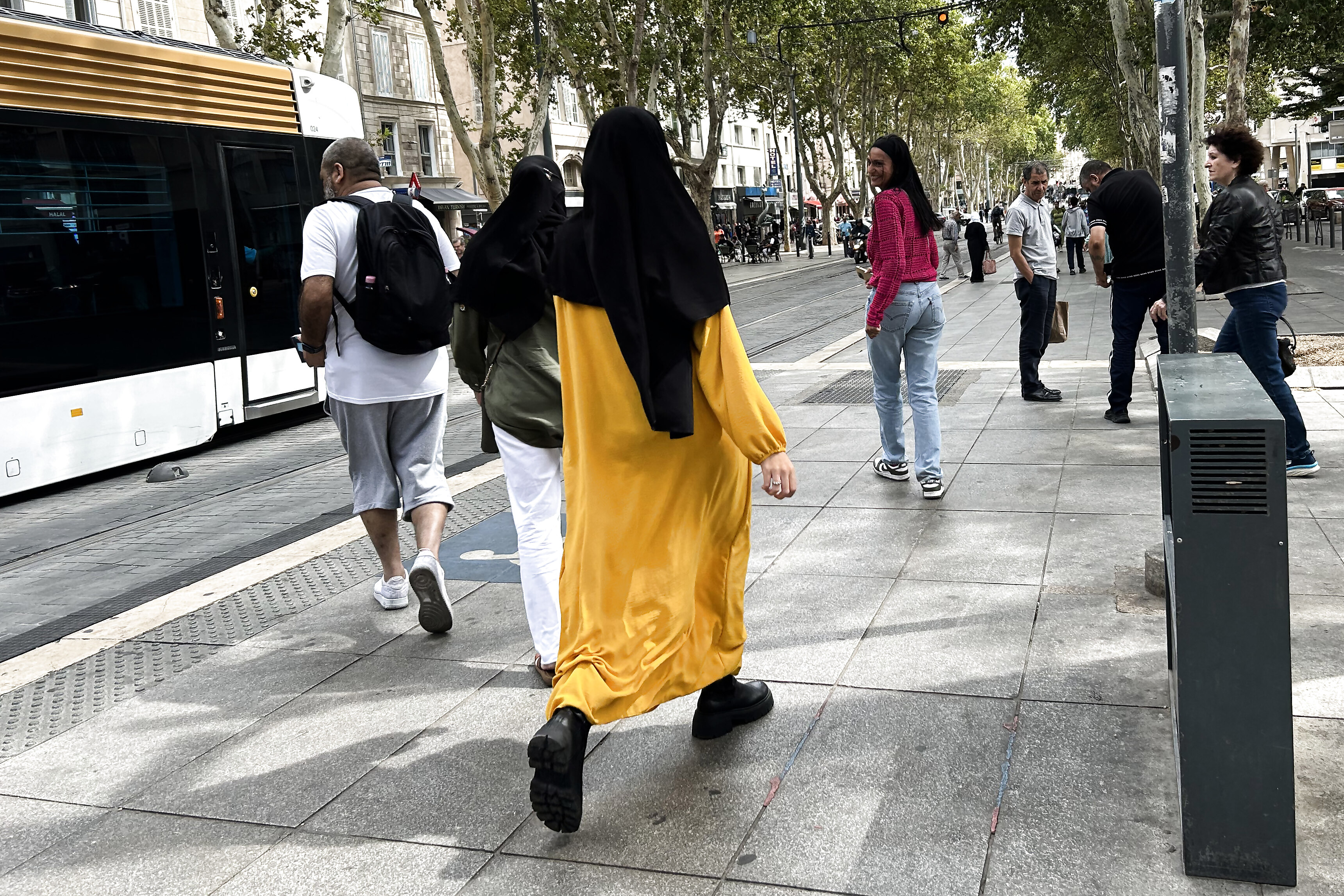France Bans Abayas in State Schools: Why it Imposed The Rule and the Debate Over Laicite | Explained

views
France has announced banning children from wearing the abaya- a loose-fitting, full-length robes worn by some Muslim women, in state-run schools from the new school year, the French Education Minister announced.
The French government’s decision to ban abaya has received applause from the right, but others are criticising the move saying that abayas, worn by women, or khamis, the male garb, is not more than a fashion statement.
For the new Education Minister Gabriel Attal, the garment is “an infringement on secularism” a foundational principle for France and a bid to destabilize schools.
“Our schools are continually put under test, and over the past months, breaches to laicite have increased considerably, in particular with (pupils) wearing religious attire like abayas and kameez,” Gabriel Attal told a news conference regarding the ban.
French ‘Laicite’
The new ban is in line with the French brand of secularism, known as “laicite”, a sensitive topic, regularly triggering political tension in the country. The country’s constitution guarantees citizens the right to practise religion freely, but it imposes an obligation on the state and state employees to respect neutrality while carrying out their duties.
Earlier in 2004, France enforced a ban on religious symbols in state schools since 2004, to uphold “laicite”. Then in 2010, the country passed a ban on full face veils in public, angering some in its more than five million-strong Muslim community and triggering the creation of private Muslim schools. Islam is the second religion in France.

Less than a year ago, Education Minister Gabriel Attal’s predecessor, Pap Ndiaye, said he was against banning the abaya, telling the Senate that “the abaya is not easy to define, legally… it would take us to the administrative tribunal, where we would lose”.
The French authorities have increasingly moved to defend secularism, a constitutional principle meant to guarantee religious neutrality in a multicultural nation.
Authorities fear that religious symbols are a gateway to Islamic radicalism, which has erupted in violence in France in the past. However, some Muslims feel stigmatized by efforts to make them conform.
In 2021, France passed a law aimed at further strengthening French secularism, notably by increasing oversight of mosques, schools and sports clubs to root out signs of Islamic radicalism.
Support from Some Quarters
The head of the conservative Les Republicains party, Eric Ciotti, was quick to welcome the move, which he said was long overdue.
The SNPDEN-UNSA union of school principals welcomed the decision, saying what it needed above all was clarity from the government, its national secretary, Didier Georges, told Reuters.
“What we wanted from ministers was: ‘yes or no?'” Georges said of the abaya. “We’re satisfied because a decision was made.”
Hard-right politician Eric Zemmour, head of the small Reconquest! party opposed to immigrants, said, “Banning abayas is a good first step if it is applied.”
Many conservative politicians in France have pushed in recent years for the ban on the wearing of religious symbols to be widened to universities and even parents accompanying children on school outings. Far-right leader Marine Le Pen campaigned in last year’s presidential election to ban veils in the street.
Opposition to the Abaya Ban
Many on the left criticised the move, including Clementine Autain, an MP for the hard-left France Insoumise, who criticised what she called the “clothes police” and a move “characteristic of an obsessional rejection of Muslims”.
And some academics agreed the move could be counterproductive, all the more as it touched on clothing they said was worn for fashion or identity rather than religion.
“It’s going to hurt Muslims in general. They will, once again, feel stigmatised,” said sociologist Agnes De Feo, who has been researching French women wearing niqab for the past decade. “It’s really a shame because people will judge these young girls, while it (the abaya) is a teenage expression without consequences.”
Twenty-two-years old Djennat, who wears abayas at home, said she could not understand why it was banned. “It’s a long dress, quite loose, it’s a normal garment, there is no religious meaning attached to it,” she told Reuters. She declined to giver her name because she was training to become a teacher.
(With inputs from agencies)




















Comments
0 comment